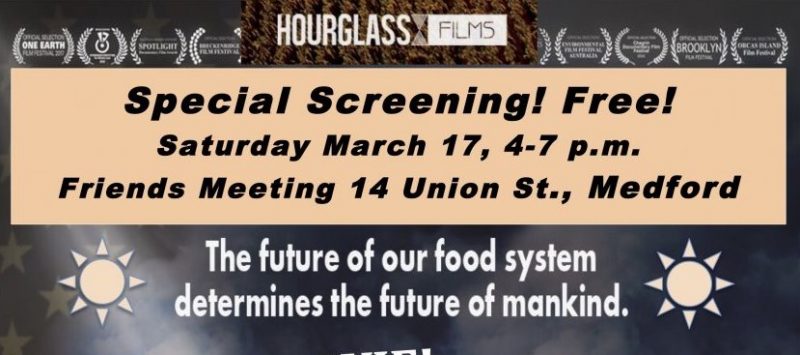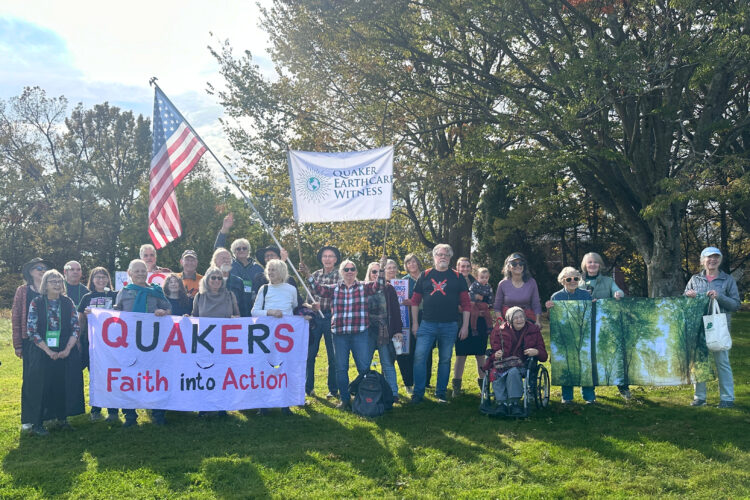Building a Community for Change: Hosting A Movie Night

By Ruth Darlington.
WHAT DO YOU DO when you are led to reach out about climate change, but you don’t know who else in your community cares about it? Last September, Medford Meeting in New Jersey co-hosted an all-day climate change film festival with the Pinelands Preservation Alliance, a local environmental powerhouse. More than 65 people attended, and we met many people who were grateful for the chance to meet and talk about climate change.
We wanted to build on those new relationships, so this March we held a public screening of the documentary Sustainable, about the future of food and reversing climate change through sustainable agriculture. We built on our winning festival combination of good films, food, and free admission, adding a wonderful speaker, Adrian Hyde, from the Northeast Organic Farming Association (NOFA-NJ), and this time we offered a free organic meal prepared by the Meeting’s climate change group.
Publicity was crucial, and we used multiple approaches, including posters in local businesses, notices to our quarterly and yearly meetings, the print media expertise of one of our members, and emails to our film festival contacts. We reached out specifically to local faith communities and garden clubs. Both the Pinelands Preservation Alliance and NOFA-NJ publicized Sustainable on their online calendars. When we asked people how they had heard about the program, we found that every publicity effort had paid off.
We had 66 people that day, and I wish I could convey the enthusiasm in the room. The film, the food, the speaker—they loved it all. Farmers met people who care about where their food comes from, activists found new connections, and people went away with new ideas about food consumption and the environment, solutions they could implement, and the sense that they didn’t have to do it alone.
This could not have happened without the commitment of a core climate change group and the support of our Quaker Meeting. But we also had the help of friends who don’t attend our Meeting, people who helped us make useful contacts, made food, and brought their friends and family. Using local expertise, in this case our wonderful speaker, took the program to another level. And we focused on solutions.
What’s next? Maybe a workshop on resilience planning or a program on sustainable investing. With each event, we reach a different audience, because, as we are learning, there’s more than one way to start the climate change conversation.
How to Organize a Movie Night
- Select your film(s).
- Contact the production company for a screening license.
- Secure a venue if your own Meeting or organization space isn’t suitable.
- Line up your speaker.
- Start all public outreach six weeks ahead and keep at it.
- Decide if you will make your own food or bring in a vendor.
- Assemble a resource list/handouts.
- Make a registration sheet to gather contact information.
- Print a program and assign tasks for the day of the event.
- Listen to your audience to figure out what’s next.

